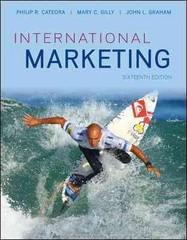Question
1. Consider an economy with $2 trillion in chequable deposits, $190 billion in desired reserves and $87 billion in excess reserves. Currency in circulation is
1. Consider an economy with $2 trillion in chequable deposits, $190 billion in desired reserves and $87 billion in excess reserves. Currency in circulation is $950 billion. (i) What is the money supply in this economy? (ii) Calculate the currency deposit ratio and the excess reserve ratio (iii) What is the money multiplier in this economy? Suppose the central bank conducts an open market purchase. Specifically, the central bank purchases $21 billion of government bonds held by banks. (iv) If the ratios calculated in part (i) remain unchanged, what do you predict will be the effect on this economy's money supply? (v) Consider the same open market purchase as in part (iv), except that banks choose to hold all of these proceeds as excess reserves instead of making loans. Assuming that currency and deposits remain the same, what happens to the excess reserve ratio and the money multiplier? Now consider a similar scenario as in part (v). That is, the central bank undertakes an open market purchase and banks choose to hold all of the proceeds as excess reserves. The only different now is that will consider an unusually large open market purchase (i.e., much larger than $21 billion). (vi) Would it be possible for such a large open market purchase to bring the money multiplier below 1 in this economy? If so, how big would the open purchase have to be?
Step by Step Solution
There are 3 Steps involved in it
Step: 1

Get Instant Access to Expert-Tailored Solutions
See step-by-step solutions with expert insights and AI powered tools for academic success
Step: 2

Step: 3

Ace Your Homework with AI
Get the answers you need in no time with our AI-driven, step-by-step assistance
Get Started


